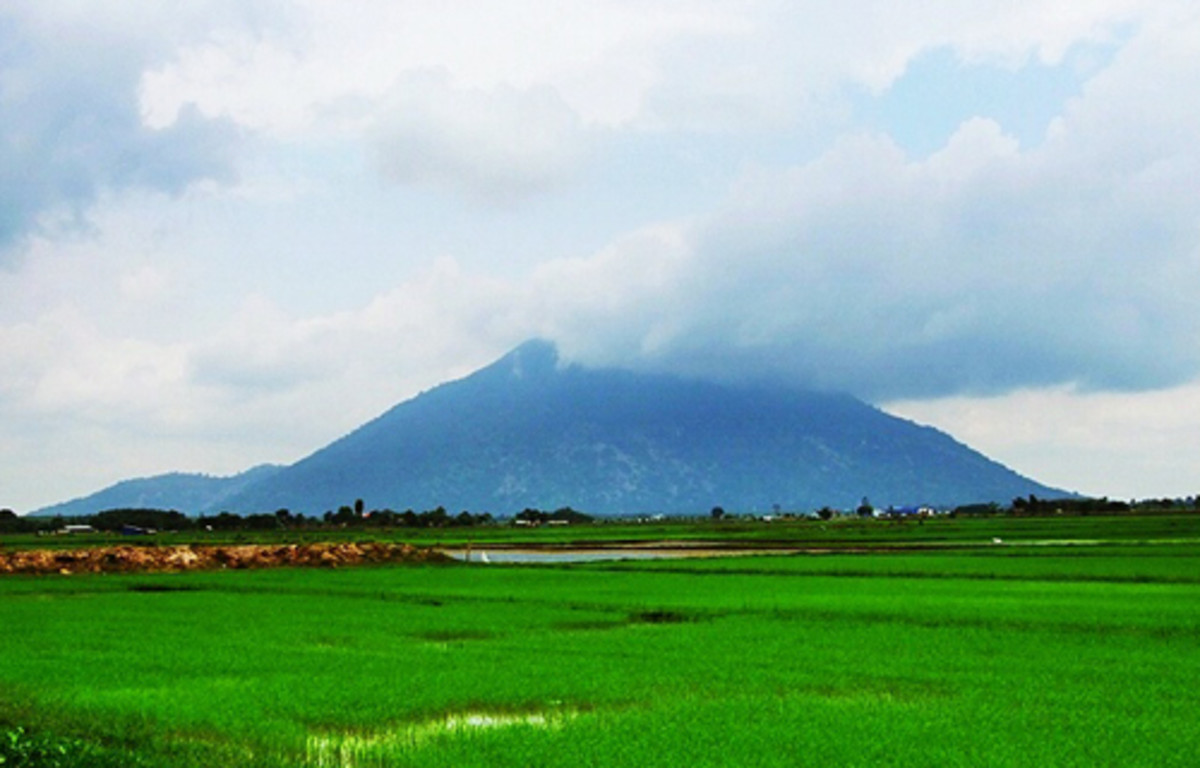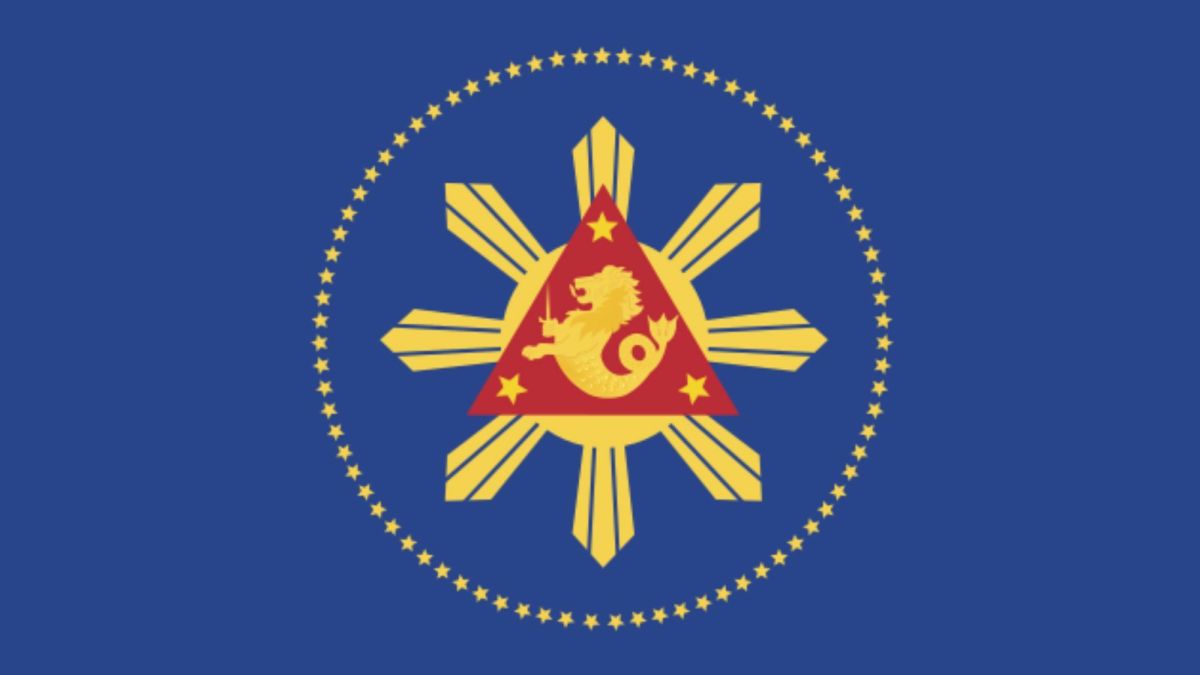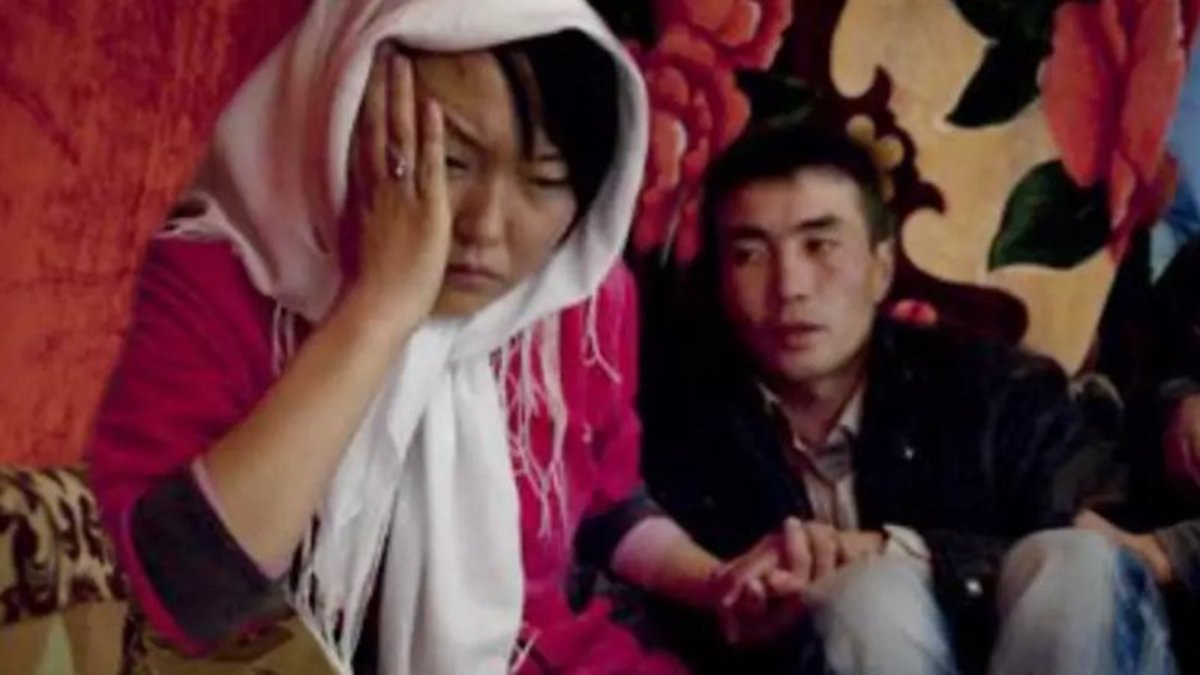What is ECCC (Extraordinary Chambers in the Courts of Cambodia)?

The initials ECCC stand for the Extraordinary Chambers in the Courts of Cambodia for the Prosecution of Crimes Committed during the Period of Democratic Kampuchea. The ECCC is a special crimes tribunal set up in Cambodia to prosecute senior leaders of the Khmer Rouge for war crimes during their reign in Cambodia from 1975 to 1979.

The General History of the Khmer Rouge
The Khmer Rouge was an ultra-nationalist group of Cambodians that began an effort to overthrow the government in the late 1960s. After several years of civil war, the Khmer Rouge gained power on April 17, 1975 when they were welcomed with white flags and sounds of rejoicing. Soon after taking the capital city Phnom Penh, fighting forces of the ultra-national group drove out the inhabitants of the city and began to systematically eliminate every member of society suspected of affiliation with the former government, higher education, or religious organizations. They did the same in every region of country and thereby slaughtered between 1.5 and three million of their own family members and friends. The Cambodian genocide was unique to other genocides in recent history because the war crimes were carried out by Khmers (Cambodians) against their fellow Khmers. In 1979, the Khmer Rouge regime called Democratic Kampuchea was overthrown and driven out of power by Vietnamese-backed forces, but not until after the damage was done. After they were driven out of power, the civil war continued in the country side until 1998.
Senior Khmer Rouge Leaders
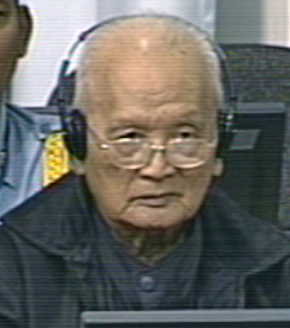
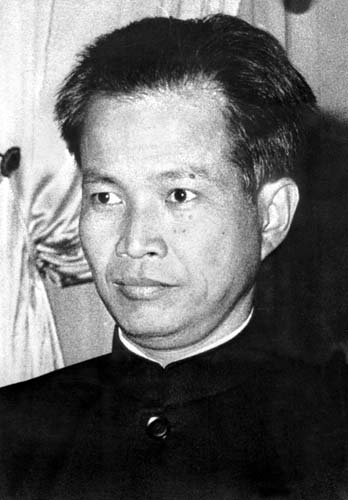
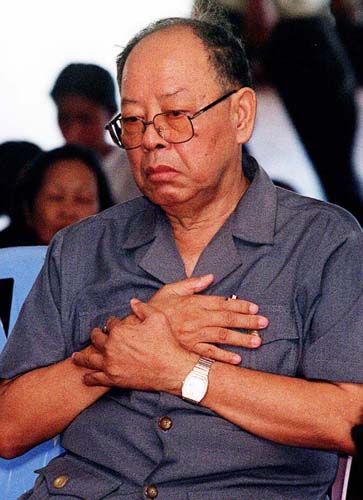
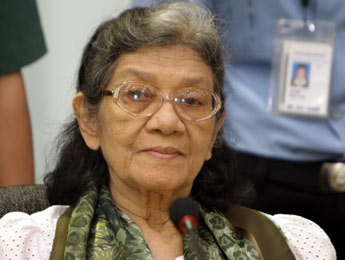
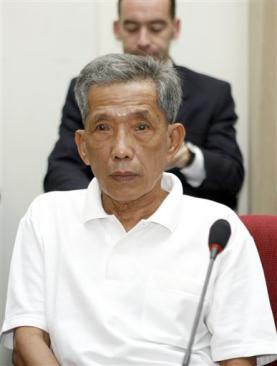
Senior Leaders of the Khmer Rouge
The Extraordinary Chambers in the Courts of Cambodia was created to prosecute war crimes orchaestrated by the senior leaders of Democratic Kampuchea. The most senior leader of the Khmer Rouge (aka Brother Number One) was Saloth Sar who took the now infamous name of Pol Pot. Pol Pot passed away before the ECCC was created and the genocide tribunal was formed. The only senior Khmer Rouge leaders still alive at the time prosecution began included:
- Nuon Chea - aka Brother Number Two;
- Khieu Samphan - president of Democratic Kampuchea;
- Ieng Sary - Deputy Prime Minister and Foreign Minister of the Khmer Rouge State;
- Ieng Thirith - wife of Ieng Sary and minister of foreign affairs of Democratic Kampuchea;
- Ta Mok - leader of the national army of democratic Kampuchea who directed of mass purges in the Cambodian genocide; and
- Kaing Guek Eav (aka Duch) - the director of the brutal Tuol Sleng torture camp located in Phnom Penh.
The ECCC
In 2001, the National Assembly of Cambodia passed a law that granted approval for Khmer Rouge war crimes trials. This law opened the way for the establishment of the special court to prosecute the most high ranking leaders in the brutal Khmer Rouge regime. The ECCC was to include justices from inside Cambodia as well as the international community.
In 2003, the government of Cambodia and the United Nations reached an agreement concerning the level of participation in the Extraordinary Chambers in the Courts of Cambodia from the international community. After negotiations, dismissals, recusals, and removals of potential candidates for positions on the special court, the ECCC settled on three court chambers including the Pre-Trial Chamber with three Cambodian judges and two international judges; the Trial Chamber also including three Cambodian judges and two international judges; and the Supreme Court Chamber with four Cambodian judges and three international judges.
The first prosecutions under the ECCC began in 2008 with Case 001 which featured Duch, the former director of the Tuol Sleng torture camp in Phnom Penh. In July 2010, Duch was convicted for crimes against humanity and violations of the 1949 Geneva Convention. The special war crimes tribunal sentenced Duch to 35 years imprisonment but then commuted the sentence to five years for illegal detention by the Cambodian Military Court. Case 002 began in June 2011 and featured the four other senior leaders pictured below.

